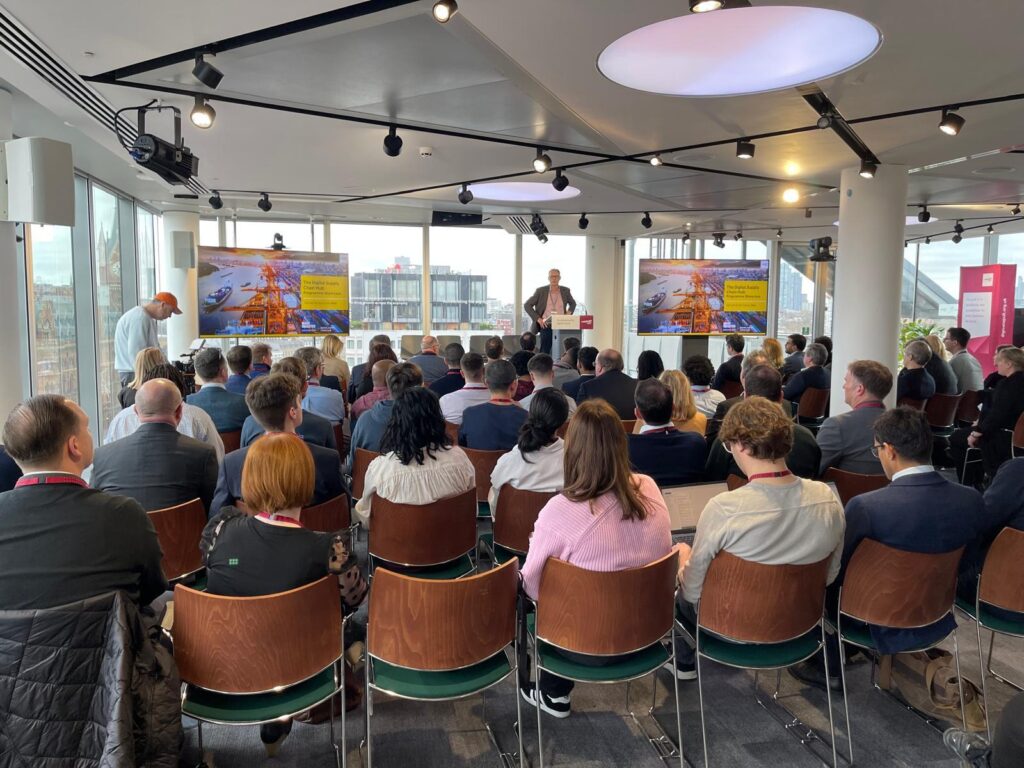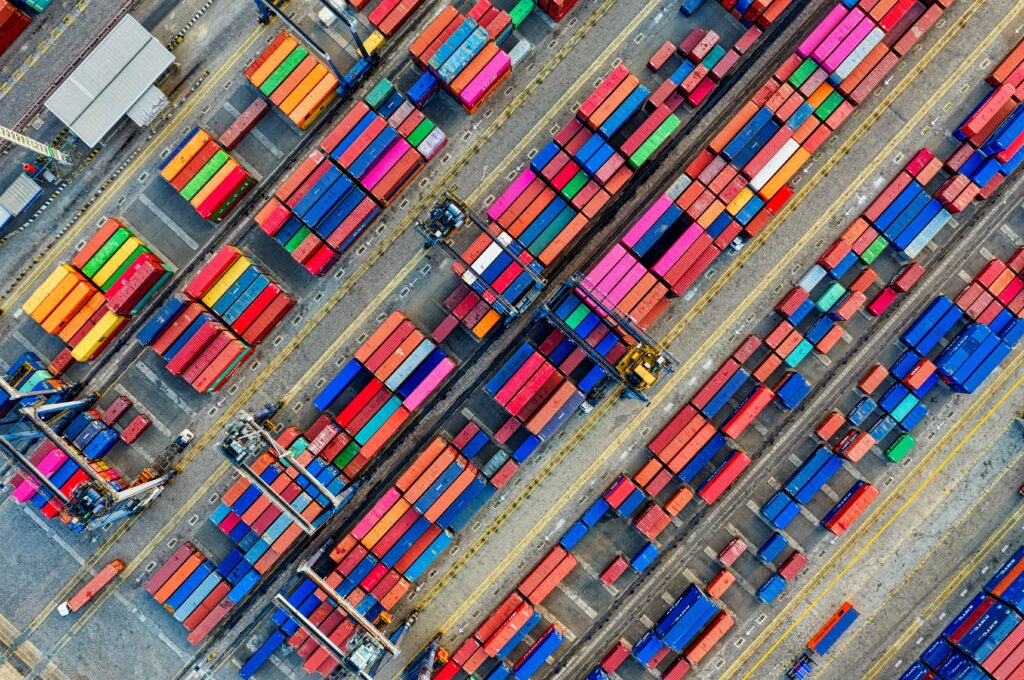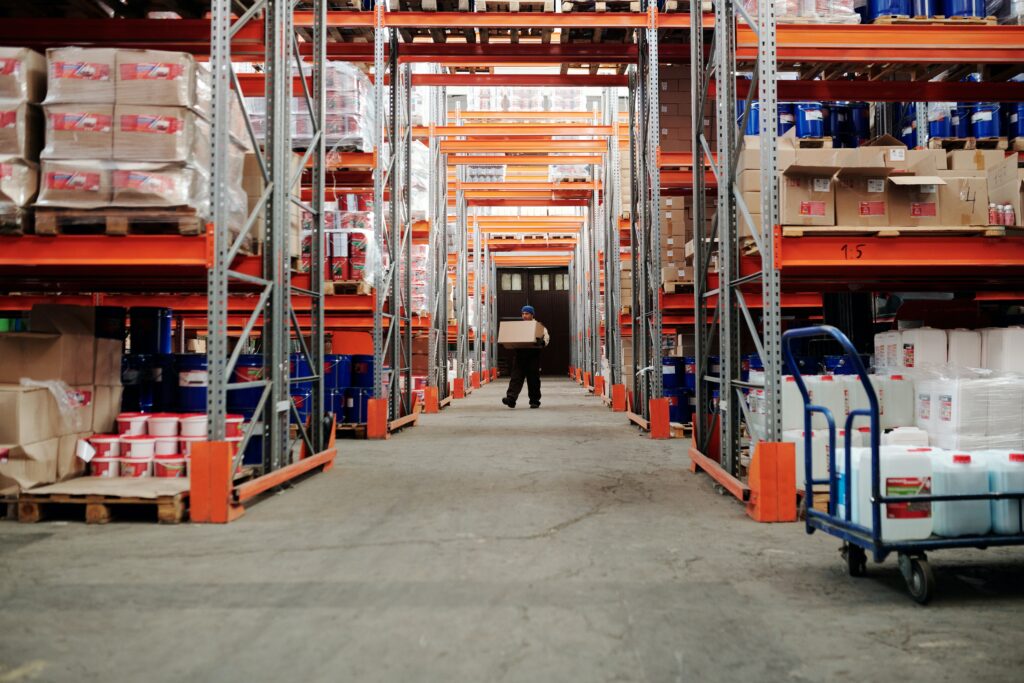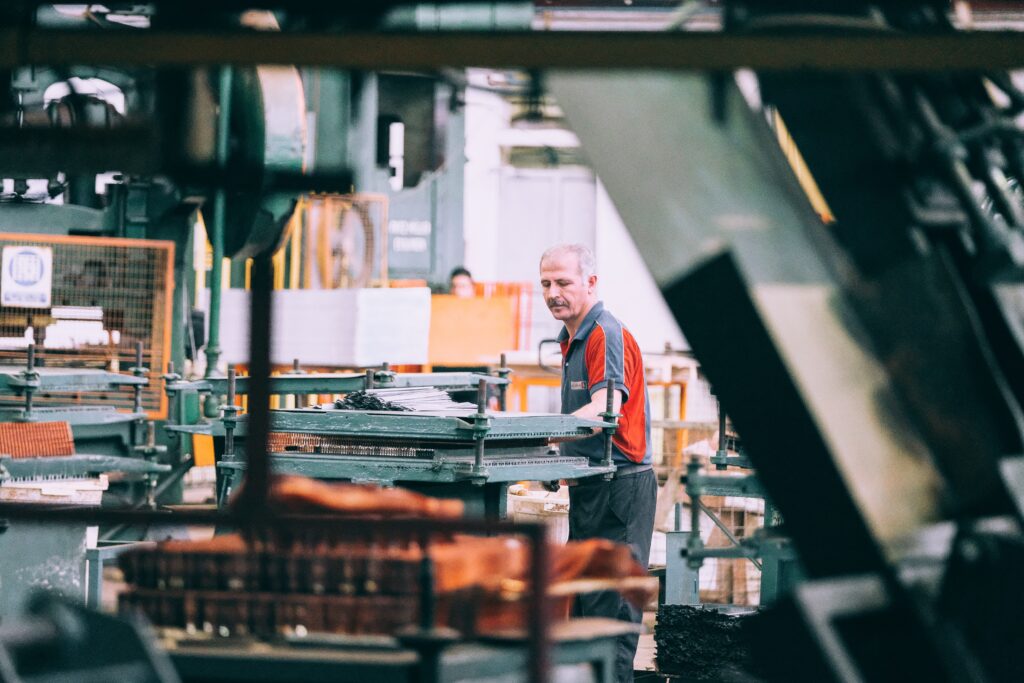The strain on supply chains is set to continue amid a backdrop of global uncertainty and disruption. As it stands, more than 60 countries and entities around the world will hold elections this year, and with national supply chains considered critical to economic prosperity, it’s likely that proposed legislation will look to make supply chains more efficient, resilient and sustainable.
Achieving this will be key to unlocking economic growth and investment opportunities, yielding gains in gross domestic output (GDP). On the Digital Supply Chain Hub (DSCH) programme, Digital Catapult continues to assess where solutions can be implemented to improve supply chains across specific sectors. Considering the needs of certain industries has been critical to the success of DSCH to date, which has been delivered by Digital Catapult and has supported several critical economic sectors including food, textiles and hydrogen.
On the 13th of March 2024, the programme culminated in a showcase event, providing a platform for the participating companies to demonstrate their solutions. Eleven pioneering companies showcased key solutions, demonstrated their successful proofs of concept and explained how they could solve a series of manufacturing challenges.
Click the link below to watch the highlights.
Developing digital twins for supply chain success
A supply chain testbed is an isolated, real world operational supply chain environment where technologies that are ready to deliver value to users can be deployed and tested without the risk of business disruption. On DSCH, there are four testbeds that each focus on a specific sector, facilitating the testing and development of solutions in a commercially neutral environment.
During this phase of the programme, the four testbeds worked with suppliers to simultaneously measure supply chain emissions and optimise inventory management. NBT Group, Hydrologiq, Circle 8 Textiles Ecosystems and Contained Technologies’ collaboration allowed for digital twins to be developed of several supply chains, encouraging the testing of new supply chain strategies and technologies. The collaboration was facilitated to support the different supply chains to become more sustainable in the long-term.
The testbeds are end-to-end digital twins which replicate the flow of information, goods, and money through a supply chain, reflecting traditional supply chain processes with considerable accuracy. This allowed each technology provider that participated on the programme to test their products using data from real-world scenarios. Doing so allowed each company to preserve the live business environment and mitigate risk, while developing solutions that would improve the supply chains.
Supporting partners to develop a successful solution for their supply chains
A key focus of the programme has been to develop a digital twin of a supply chain for spare parts, improving the resiliency and efficiency of innovative supply chain solutions. NBT Group has collaborated with Northumbria University, Vytech Solutions, Troy Group, North-East Automotive Alliance, and Womble Dickinson to develop this digital twin, which will be available for any business interested in testing innovative supply chain solutions for an end-to-end spare parts supply chain. Hydrogiq, a testbed focusing on hydrogen energy, has sought to develop a data environment based on real-world data and relationships. This has allowed third parties to test business scenarios in the testbed, hardware, and process innovations related to the hydrogen NRMM* supply chain.
Circle 8 Textiles Ecosystems is working on two interconnected manufacturing facilities: advanced textiles sorting facilities in the UK and a pre-processing facility for non-reusable textiles. This comes as the UK’s fashion and textiles industry currently contributes £62 billion to the UK economy every year, and supports 1.3 million jobs. Contained Technologies is addressing efficiency challenges in the food industry by directly supplying produce from farms to supermarkets. The food industry has been facing significant challenges with its infrastructure, and maximising efficiency is the best approach to making more food available to customers. Developing innovative solutions that can solve the problem of getting food from a farm to a supermarket shelf more efficiently, will result in less waste.
Industry representatives from LaundRE, McColgans, Northumbria University and HydroGenus shared research and findings on their deployment solutions, highlighting a key issue about the difficulty SMEs experienced in accessing data flow systems to make best use of their innovative supply chain solutions.
Endorsement from partners and industry experts
It is vital that supply chains remain resilient and that businesses are prepared to address shifting global trends. Ensuring that the UK has access to goods and imports is essential to supporting critical sectors, and supply chain mapping of this nature will be key to supporting businesses and organisations as they attempt to make their supply chains more resilient. In developing more sustainable, efficient and resilient supply chains, the programme will help to maintain the UK’s reputation as a safe and reliable country to do business in.
Keynote speaker Philipa Makepeace OBE, Director of Global Supply Chains and Economic Security at the Department for Business and Trade, commented:
“The work of the Digital Supply Chain Hub to connect innovators with industry is critical for supporting the Government to hit net-zero targets and improve the resilience of supply chains in the UK. I look forward to supporting ongoing supply chain innovation. It's been amazing to see the positive impact Digital Catapult has made so far."
Click the link below to watch the full event.
Get involved
The new Digital Supply Chain Hub is the next step in growing a community of individuals, companies and academics that will explore technology enabled solutions to build more efficient, resilient and sustainable supply chains.
Central to this mission, the new Digital Supply Chain Hub will provide supply chain leaders and organisations with the ability to match with solution providers & adopters, build knowledge through training resources, and be part of a community looking to gain a competitive advantage through optimal supply chain processes.
To find out more about the launch of the new Digital Supply Chain Hub, future events and funding opportunities please sign up to our newsletter here.




